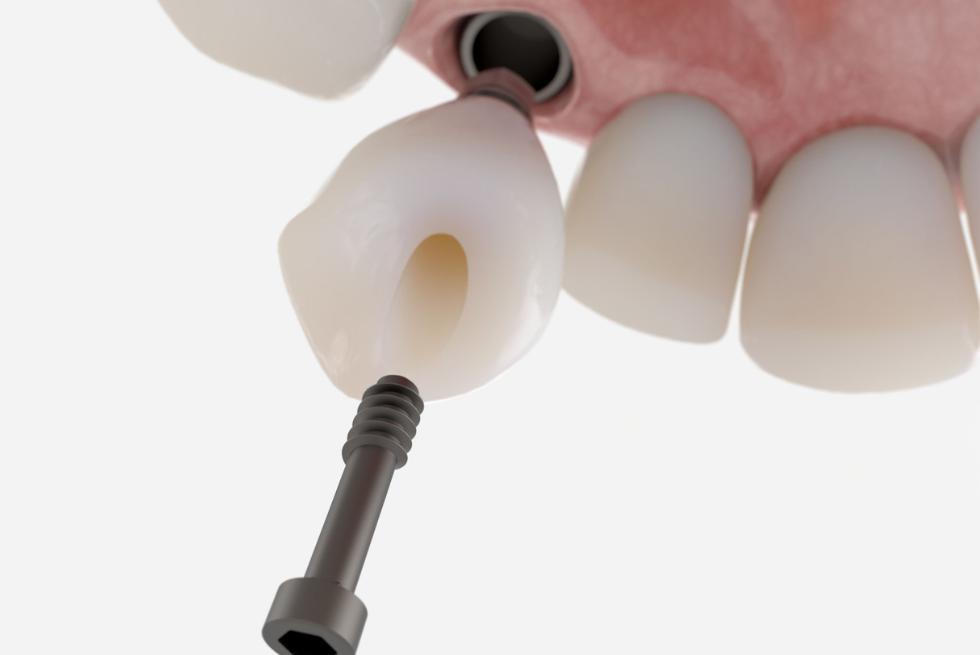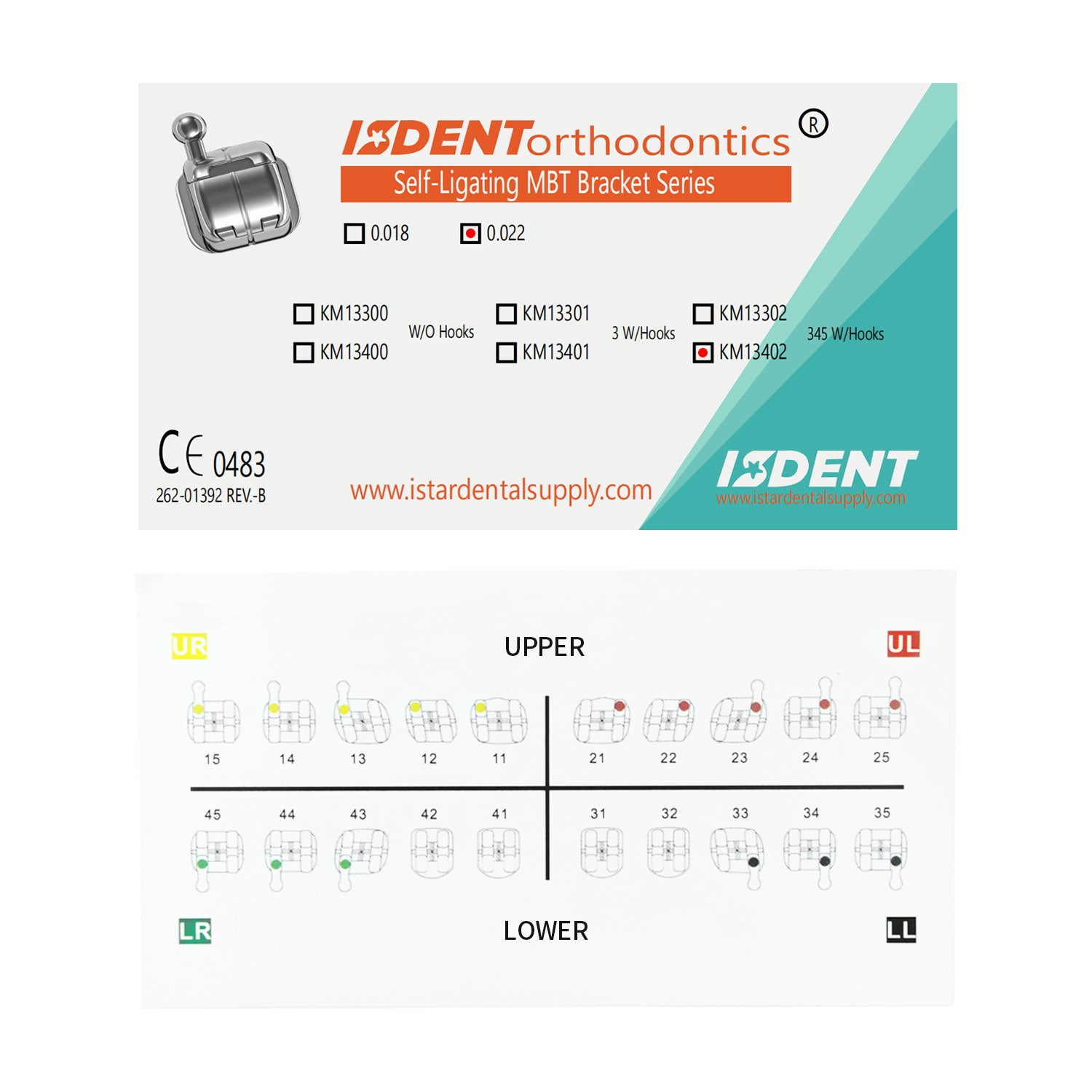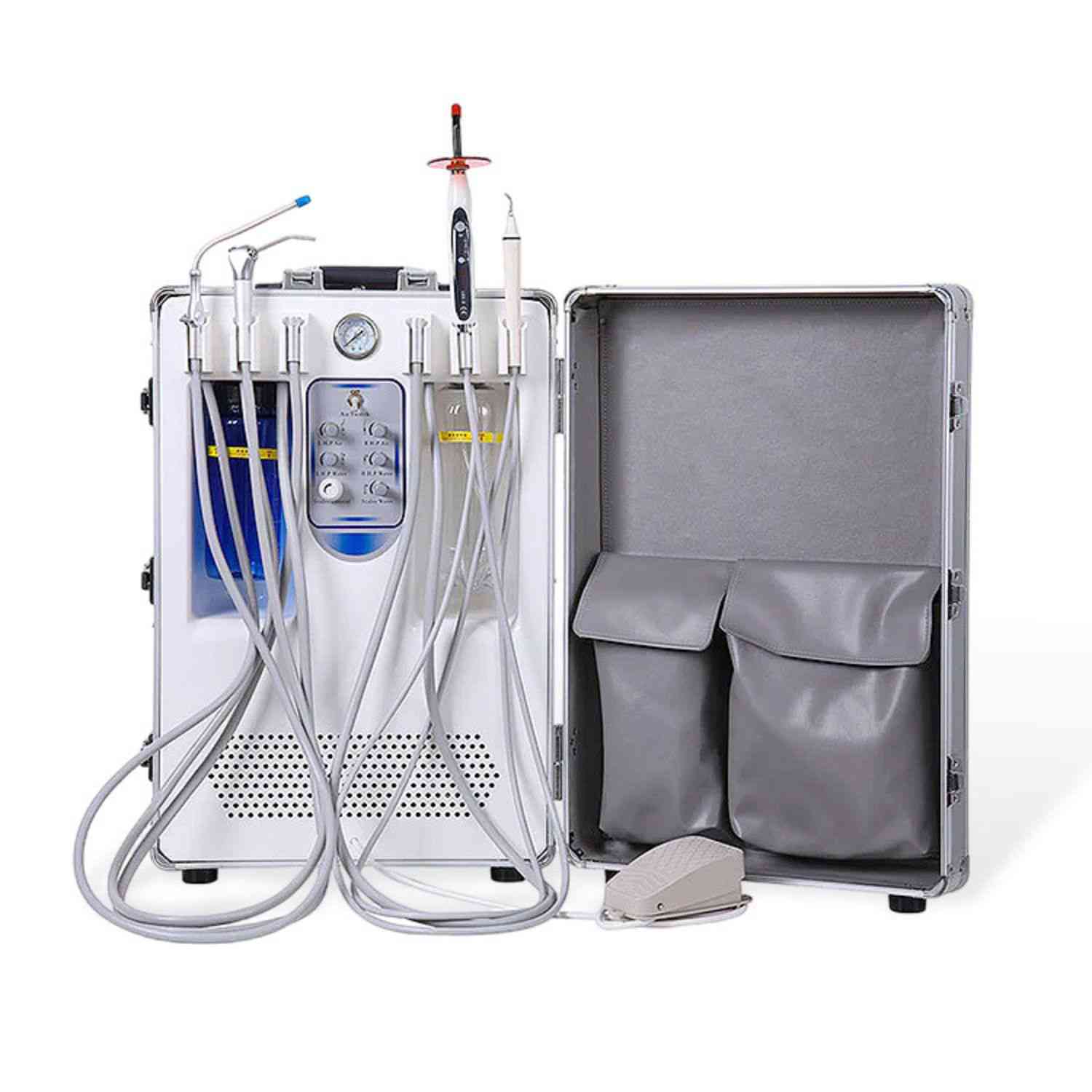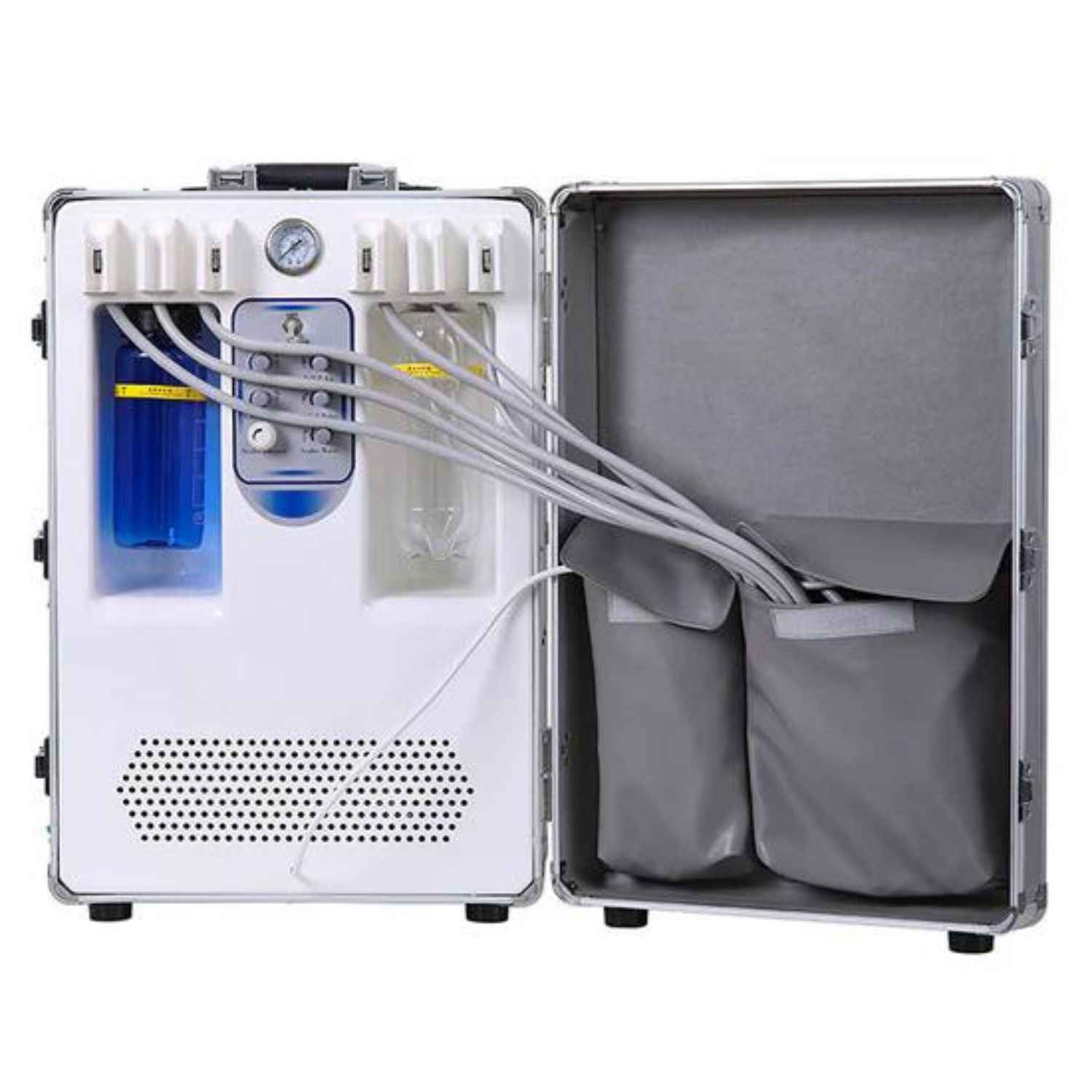My Dental Implant Feels Loose! Is This an Emergency? How to Fix Loose Dental Implants
A loose dental implant can be scary. You invested time and money into getting a strong, permanent tooth replacement. The thought of it failing is tough. But here's the good news: in many cases, a loose dental implant can be saved. The key is to act fast and know what's happening. In this article, I'm going to walk you through everything. We'll talk about why your dental implant might feel loose, what to do right away, and how your dentist can fix loose dental implants. You'll learn the difference between a minor issue and a major problem, so you can face your dental visit with confidence.
Why Do Dental Implants Become Loose?
When I got my first set of dental implants, my dentist told me they were the strongest way to replace missing teeth. And he was right! But like anything, things can happen. A dental implant can become loose for several reasons. Sometimes, the problem is simple. Other times, it’s more serious. It's important to understand why this happens.
The most common reason an implant feels wobbly is not the implant post itself. It's usually one of the parts attached to it. The implant could have a loose abutment, which is the connector piece. Or, the crown, which is the part that looks like a tooth, could be loose. This is often an easy fix. However, the implant can become loose for more serious reasons. An infection around the implant, called peri-implantitis, can damage the bone holding it in place. Too much pressure on the implant, from grinding your teeth for example, can also cause problems. The implant may be loose if the original implant surgery didn't fully heal, and the bone didn't grow tightly around your implant.
Is a Loose Dental Implant an Emergency I Need to Worry About?
Yes, you should treat it as a dental emergency. The moment your dental implant is loose, you need to call your dentist. I know it’s tempting to wait and see if it gets better. Don't do that. Waiting can turn a small, fixable problem into a big one where the implant needs to be removed. Think of it like a wobbly screw in a piece of furniture. If you tighten it right away, everything is fine. If you let it wiggle, it can strip the wood and ruin the whole thing.
When you call your dental office, tell them exactly what you feel. Say, "My dental implant is loose." They will know this is a priority. While you wait for your appointment, there are a few things you should do. First, stop chewing on that side of your mouth. Putting pressure on it can make it worse. Second, don't wiggle it with your tongue or finger to test it. Leave it alone. Third, keep the area clean by gently rinsing with salt water. This helps prevent infection. Quick action is the first step to saving the implant.
What’s the Difference: Is My Crown Loose or is the Whole Tooth Implant Loose?
This is the most important question your dentist will answer. It’s the difference between a quick fix and a serious problem. A loose dental implant can mean a few different things. Most of the time, the problem is with the parts on top of the implant, not the implant in the bone. Dental implants have three parts: the implant post (the screw in your jaw), the abutment (the connector), and the crown (the fake tooth).
A loose crown or a loose abutment is the best-case scenario. If the crown is loose, it means the dental cement holding it may have washed out, or the small screw holding it in place has loosened. Your dentist can often fix this in one visit, without affecting the implant post. However, if the actual implant post is loose in your jawbone, that is a much bigger issue. This means the implant is losing its connection to the bone. It's a sign of potential implant failure.
Here is a simple table to help you understand the difference:
|
Symptom |
It's Likely a Loose Crown or Abutment If... |
It Could Be a Loose Implant Post If... |
|
Movement |
The crown wiggles, but the gum around it feels still. |
The whole thing, including the gum line, seems to move. |
|
Pain |
There is usually no pain, just an odd feeling. |
You may feel a dull ache, pain, or see swollen gums. |
|
Sound |
You might hear a small "tick" or "click" sound. |
You usually won't hear a sound, just feel the movement. |
How Will My Dentist Find Out Why My Implant Becomes Loose?
When I went in for my appointment, my dentist was like a detective. He had a clear process to find the cause of my implant loose problem. Your dental visit will likely be very similar. The first thing a dental professional will do is talk to you. They'll ask when you first noticed it, if you have any pain, and if you had any recent injuries to your mouth.
Next, they will gently examine the implant area. They will carefully touch the crown to see exactly what is moving. Is it just the crown, or is the whole structure moving? They will also check your gums around the implant for any signs of swelling, redness, or infection. The most important tool they have is an X-ray. An X-ray shows the bone around the implant. It tells the dentist if the implant post is still firmly set in the jawbone. If the X-ray shows bone loss, it points to a more serious problem. This careful check-up is key to creating the right plan to fix a loose dental implant.
Can You Fix a Loose Dental Implant Restoration Easily?
I was so relieved when my dentist told me my problem was a simple one. If the issue is with the dental implant restoration—the crown or the abutment—the fix is often quick and easy. Many dental implants are one of two types: cement-retained or screw-retained. This just means how the crown is attached.
If you have a cement-retained implant crown, the dental cement that holds the crown to the abutment may have failed. Your dentist will simply remove the crown, clean everything, and re-cement it. It’s that simple! If you have a screw-retained implant crown, there is a tiny implant screw that goes through the crown and directly into the implant post. This screw can sometimes become loose over time. Your dentist has a special tool to tighten this screw, and your tooth will feel solid again. This is great news because it means the actual dental implant doesn't need any work.
What Happens if the Implant Post Itself Comes Loose from the Bone?
This is the scenario we all worry about. If the X-ray shows that the implant itself is loose, it means the implant is failing. The strong bond between the implant in the bone and your jaw has broken down. This is a condition called implant failure. It usually happens because of an infection called peri-implantitis, which is like gum disease for dental implants. It eats away at the bone that needs to support the implant.
When the actual dental implant is loose, you can't just tighten it. The foundation is weak. The bone that holds the implant in place is gone. In almost all of these cases, the implant must be removed. Your dentist, who may be a dental implant specialist, will explain the process. It's not the news anyone wants to hear, but trying to save a truly loose implant would be like trying to build a house on sand. It won't work and can cause more damage. Your health is the top priority.
Is Implant Failure a Big Risk? What is the Success Rate of Dental Implants?
After my scare, I asked my dentist this exact question. I wanted to know if my other dental implants were at risk. He gave me some very good news. The success rate of dental implants is very high, usually between 95% and 98%. Dental implants are the sturdiest tooth replacement options we have. They are designed to last a lifetime. Implant failure is not common, but it can happen.
Most failures happen for a few key reasons. Poor dental care is a big one. You have to clean your dental implants just like natural teeth to prevent infection. Smoking is another major risk factor, as it slows healing. Some health conditions, like uncontrolled diabetes, can also affect how well your body heals around the implant. But for most dental implant patients, if the implant was placed correctly and you take good care of it, it should stay strong for many, many years. My own experience showed me that even when implant issues pop up, there are solutions.
How Can My Dentist Save My Implant and Prevent Total Implant Failure?
If your dentist catches the problem early, there is a good chance they can save your implant. The goal is to stop what is causing the problem. If the cause is too much stress on the implant from teeth grinding, a night guard can solve the problem. A night guard is a simple plastic tray you wear at night to protect your teeth and dental implants.
If the cause is an early-stage infection, your dental team can perform a deep cleaning around the implant to remove the harmful bacteria. They may also use special antibiotics. In some cases where a little bone has been lost, a bone graft might be possible. This procedure adds bone material to the area to help rebuild the foundation and stabilize the implant. The key to all of these dental treatments is acting fast. The sooner you see your dentist after you feel something is wrong, the more options you have to save the implant and prevent a bigger problem.
What If I Need a Repeat Dental Implant Surgery?
Hearing that I might need a new implant was tough. But my dentist explained the process, and it wasn't as scary as I thought. If your implant must be removed, the first step is for the area to heal. The dental implant specialist will carefully take out the failed dental implant and clean the area. They will likely place a bone graft to rebuild the jawbone so it is strong enough to hold a new implant in the future.
After a few months of healing, you can go through the implant placement process again. Modern implant technology and techniques make this process very successful. Your dentist will have a better knowledge of implant behavior in your mouth and can take extra steps to ensure success. While nobody wants a repeat dental implant procedure, it is a great option to get back your strong, healthy smile. A failed dental implant is not the end of the road for implant dentistry.
How Do I Take Care of My Dental Implants to Stop This from Happening?
After my experience with a loose implant, I became much more serious about my dental care routine. Preventing problems is so much easier than fixing them. The best way to keep the implant healthy is to treat it like a natural tooth. This means brushing twice a day and flossing every single day. It's very important to floss around the implant to remove plaque that can cause infection. Your dentist may recommend special tools, like a water flosser or tiny brushes, to clean the area perfectly.
Regular check-ups are also a must. Visiting your dentist and hygienist twice a year allows them to check on your dental implants. They can spot early signs of trouble, like gum inflammation or a slightly loose crown, before you even notice them. This ongoing care is the best way to protect your investment and make sure your dental implants last a lifetime.
What to Do Immediately if Your Implant Feels Loose: A Checklist
If you feel any movement, don't panic. Just follow these simple steps.
-
[ ] Stop Chewing: Immediately stop eating on the side with the loose tooth implant.
-
[ ] Don't Wiggle It: Resist the urge to poke or wiggle the implant with your tongue or fingers.
-
[ ] Clean Gently: You can gently rinse your mouth with warm salt water to keep the area clean.
-
[ ] Call Your Dentist: This is the most important step. Call your dental office right away and tell them you need immediate dental attention for a loose dental implant.
Key Takeaways to Remember
To wrap things up, here are the most important things I learned from my experience with a loose dental implant.
-
A wobbly feeling doesn't always mean the whole implant is failing. It is often just a loose crown or abutment, which is an easy fix.
-
Treat a loose dental implant as a dental emergency. Call your dentist immediately to give yourself the best chance to save the implant.
-
The difference between a loose crown and a loose implant post is huge. Your dentist will use an X-ray to see the bone around the implant and know for sure.
-
Good daily hygiene is the best way to prevent implant issues. Brush and floss around your dental implants every day.
-
Don't skip your regular dental check-ups. They are key to catching problems early before they become loose for several reasons.
-
Even in the worst-case scenario, where an implant needs to be removed, modern advanced dental implant procedures can give you a strong, new tooth replacement.









